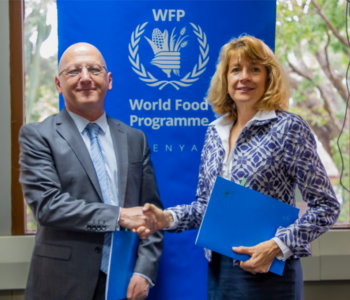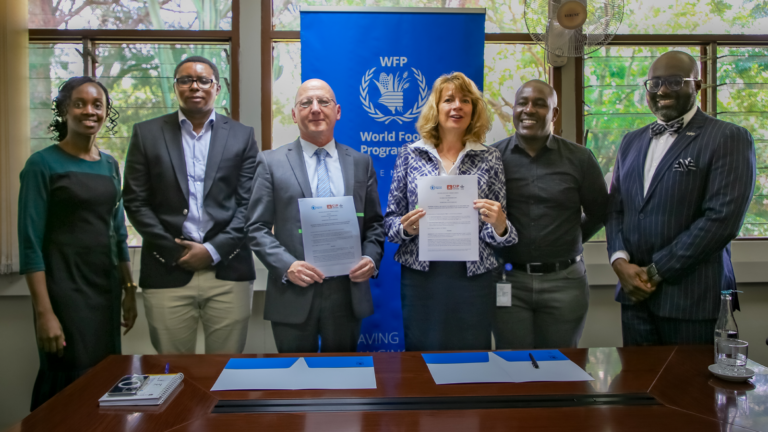 To combat hunger and malnutrition, the World Food Program (WFP) and the International Potato Center (CIP) have extended their partnership for a further four years with a new memorandum of understanding (MOU) today. The next phase of collaboration shifts focus toward research and innovation that will mobilize the nutrition benefits of biofortified and other nutritious crops through market alliances, school feeding, and other social protection programs.
To combat hunger and malnutrition, the World Food Program (WFP) and the International Potato Center (CIP) have extended their partnership for a further four years with a new memorandum of understanding (MOU) today. The next phase of collaboration shifts focus toward research and innovation that will mobilize the nutrition benefits of biofortified and other nutritious crops through market alliances, school feeding, and other social protection programs.
Recognizing the urgent need for deeper partnership between research and delivery at the nexus between humanitarian programming and resilience building, WFP and CIP join their complementary capabilities to drive nutrition focused innovations for vulnerable populations in Kenya and neighbouring countries.
The broad impacts on Vitamin A deficiency achieved with Orange Fleshed Sweet Potato (OFSP) over the past years will be expanded to include other biofortified and nutritious crops and foods. Recognized as a flagship crop for school feeding and social protection programs, OFSP offers immense potential in addressing malnutrition.
Expanding Reach through Strategic Alliances
In Kenya, WFP and CIP commit to working with Government and school feeding alliances to achieve the ambitious goal of serving 10 million children countrywide with nutritious school meals.
The MOU gains further momentum by including the WFP Farm-to-Market Alliance (FtMA) as a strategic partner. Already serving 80,000 potato farmers through its Farmer Service Center model, FtMA is a powerful partner for harnessing local and regional markets to expand the reach of nutritious crop varieties. Joint efforts with CIP target particularly the arid and semi-arid regions of Kenya where agriculture and food security face unique challenges.
Both parties recognize the importance of preventive nutrition programming, especially in improving infant and young child diets. OFSP puree has proved to be an effective weaning and infant food especially where complementary nutrition education can be delivered. WFP and CIP are committed to exploring new channels for delivering this product also in resource-poor urban communities where young child diets are inadequate.

Research as the Cornerstone
Rigorous research on delivery models will be at the heart of this partnership. Drawing on the expertise of CGIAR Centers and other research partners, the collaboration aims to optimize interventions for maximum impact. The focus shifts beyond immediate relief to sustainable solutions that empower communities and reduce dependence on food aid.
The memorandum of understanding between WFP and CIP represents a milestone in the partnership between agrifood research and delivery programming. By supporting school feeding initiatives, harnessing the potential of nutritious crops, and fostering strategic alliances, this collaboration sets a powerful example for international cooperation in addressing food insecurity.
